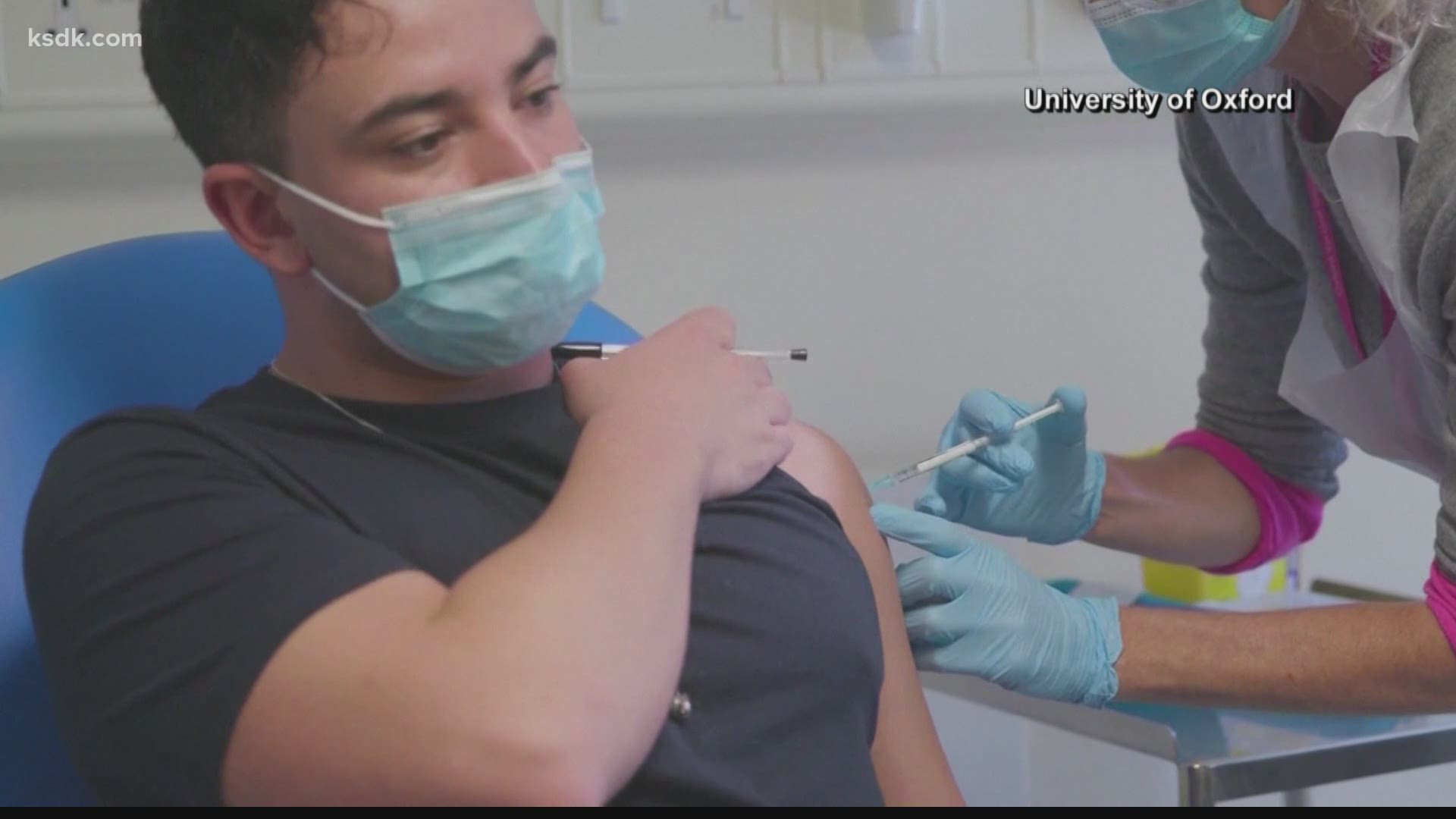ST. LOUIS — Promising news from AstraZeneca and the University of Oxford, they say late-stage trials show their vaccine is between 70% and 90% effective.
Last week, Pfizer and Moderna announced each of their vaccines is 95% effective.
So far, Pfizer has applied for emergency approval from the FDA. Moderna is not far behind.
AstraZeneca's trials included people from the United Kingdom, Brazil and South Africa, so it is applying for emergency use from the World Health Organization.
AstraZeneca's vaccine is similar to Pfizer and Moderna's. Infectious Disease Specialist Dr. Rachel Presti with Washington University's School of Medicine explained. "All of the vaccines are designed to target that spike protein."
She says when you look at a picture or drawing of the virus, protein spikes are the antennae sticking out of the sphere. It's those spikes that adhere to other vessels and spread the virus.
"We know from animal studies and research that people have done for years on coronaviruses that if you have an immune response against that spike, you can prevent infection and prevent disease," Dr. Presti said.
The three vaccines accomplish the same thing, but AstraZeneca's vaccine works differently than Moderna and Pfizer's. Their vaccine works by attaching one of those spikes to a less harmful virus, like a cold.
The Pfizer and Moderna vaccine uses mRNA.
"MRNA is the molecule that your cells use to make proteins," explains Dr. Presti, "it's like the blueprint for making proteins."
MRNA makes those spike proteins, which creates an immune response, which then teaches the body how to fight the virus.
Dr. Daniel Hoft is with Saint Louis University's Center for Vaccine Development, they're working with both Moderna's mRNA style vaccine and Janssen's which is like AstraZenca's.
Dr. Hoft says he'll be happy to take any of them, "I'll take any of them that I can get. So far the first three show the potential for getting emergency use authorization."
He believes it's important that people understand the risk-benefit ratios when taking a vaccine, "what we have seen so far with the vaccines is that they are going to work, they are going to protect people from death."
Dr. Hoft stresses that getting vaccinated is not just a personal choice, but a personal responsibility.
For those worried about the COVID-19 vaccines being rushed, both Dr. Hoft and Dr. Presti say not to stress. Typically only a few labs work on a vaccine at a time, instead hundreds of labs and thousands of scientists are working on the COVID-19 vaccine.
"It's pretty unusual to have this many really smart scientists all over the world working on the same problem at the same time," Dr. Presti said. "And I think that shows you what can be done if if you've got a really pressing situation."
Dr. Presti explained that the science did not go any faster when developing these vaccines, "instead of doing 100 vaccines serially to find the best one, we did them all at once to figure out what was the best and move that forward."
If the Pfizer and Moderna vaccines are granted emergency approval, they will be the first mRNA vaccines distributed commercially.
"They are new so we don't have as much experience with them," Dr. Hoft said. "But 30,000 volunteers enrolled in the Moderna trial and studied for at least two months."
He says most bad reactions happen in a short time frame. By seeing how a large amount of people handle the vaccine, the researchers can determine how efficient and safe it is.
"We have enough people to be confident we are not seeing common events for sure, and we are not seeing relatively rare events," Dr. Hoft said.
Dr. Hoft says researchers won't know about rare events for a few years, but in the face of a pandemic the benefits outweigh the costs.
To learn more about participating in a COVID-19 vaccine trial at Washington University School of Medicine, please email idcru@wustl.edu or call 314-454-0058 or visit the Division of Infectious Diseases clinical trials website.
To learn more about participating in vaccine trials at Saint Louis University's Center for Vaccine Develop visit their website.

